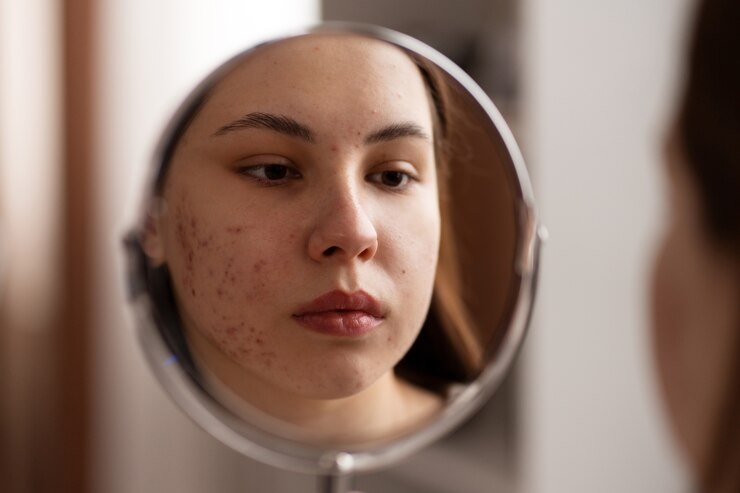Acne also known as pimples, causes skin problems for people of all ages. Most individuals deal with pimples at some point in their lives, but these skin issues often lead to worry and uncertainty. Many people believe that pimples might indicate cancer. However, Dr. Sachin Trivedi, Director- Medical Oncology, HCG Cancer Center says there's not direct link between pimples and cancer. "Pimples show up because of dirt buildup, hormone changes, stress, or poor eating habits. They don't cause cancer at all," says Dr. Trivedi. He further explains that cancer, on the other hand, is a disease that happens when abnormal cells grow out of control. "While some cancers can change how skin looks, pimples come from clogged pores or other skin issues that aren't cancer. In most cases, pimples have nothing to do with any type of cancer," says the doctor.
When cancer may impact the skin
DR. Trivedi says pimples aren't cancerous, but some tumors can change the skin because of hormone shifts. For example, pituitary tumors, which control hormones they can make too much ACTH (adrenocorticotropic hormone) leading to extra cortisol. "Pimples themselves aren't cancerous, but some tumors can affect the skin due to hormone changes. Elevated cortisol can cause the skin layers to make more oil resulting in acne, tumors on the adrenal glands increase cortisol levels through adrenocortical tumors; acne or skin color changes can point to this," explains Dr. Trivedi. But these changes come from the tumor's hormone effects and don't mean cancer. Some cancer treatments can cause rashes on the skin that look like pimples.
Skin changes that could signal cancer
In most cases, the changes throughout the skin surface are normal, and only a few of them indicate the potential of being originating from skin cancer. Dr Trivedi says it is important that one must be able to differentiate the normal acne from the ones which are risky of causing skin cancer. Here are some of the warning signs you should pay attention, which warrant a visit to a healthcare professional:

- A persistent rash or itching that does not respond to standard treatments
- Changes in the size, shape, or color of moles, or the appearance of new moles
- Thickening of the skin or the development of unusual lumps or bumps
"If the pimple lasts for a longer time or shows any of the features stated above, it may be a predictor of skin cancer. In any of these kinds of incidents, it is best to deal with the problem by referring to a doctor as soon as possible.," Suggests Dr. Trivedi.
When to seek medical attention
Although pimples are not dangerous most of the time there are signs that warrant a visit to the doctor. If you notice any of the following signs, it's best to consult a healthcare professional:
- Persistent skin changes that do not respond to typical acne treatments
- Pimples that grow, change color, or bleed over time
- Unexplained changes in the texture or appearance of the skin
"These changes may indicate other skin diseases or in the worst case scenarios may be a sign of skin cancer. Early detection and treatment improve outcomes and increase the likelihood of successful treatment," warns Dr. Trivedi.
Read More:



